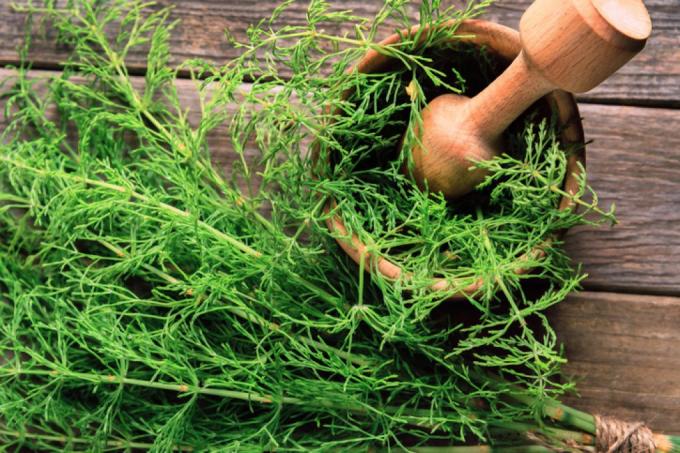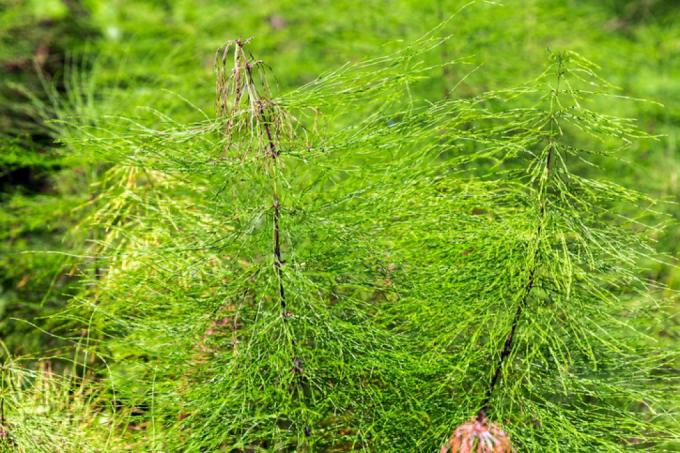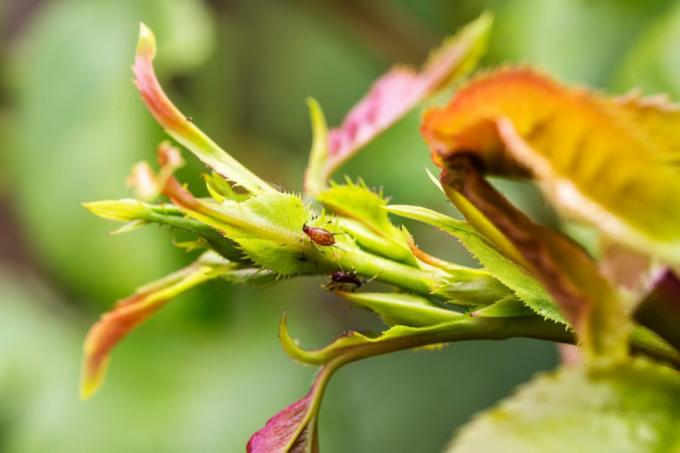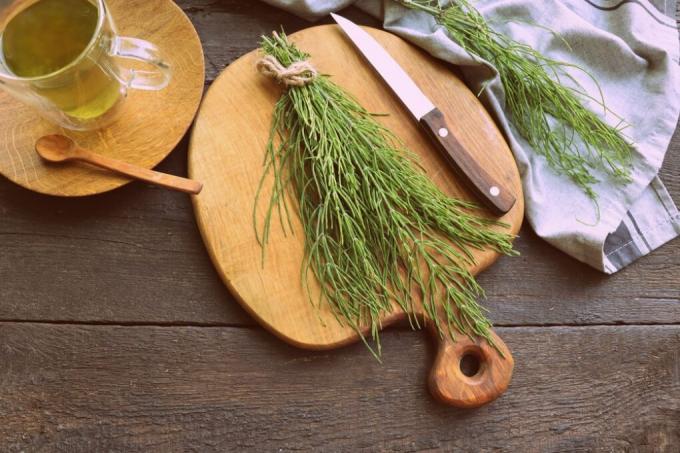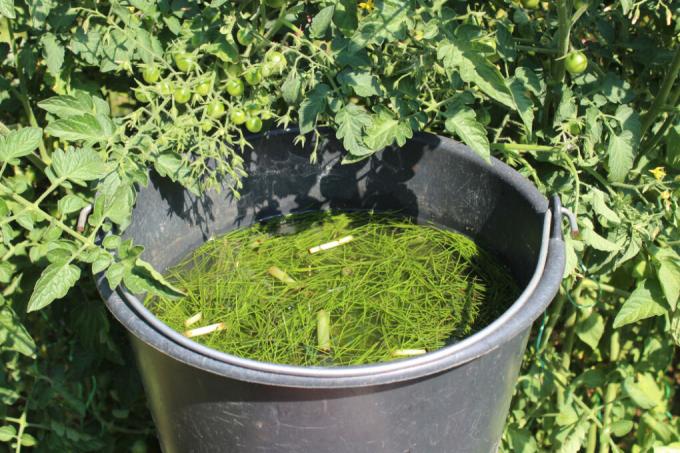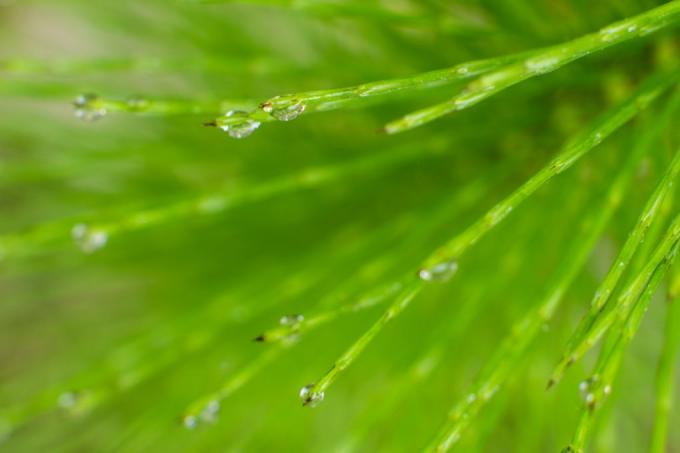AT A GLANCE
How does field horsetail help against rose rust?
Field horsetail, also known colloquially as horsetail, strengthens the leaves and makes them resistant to fungi and pests. Rose rust, Phragmidium mucronatum, is a fungus that only affects roses. It can be recognized by small, rust-colored spots that first appear on the underside of the leaf. The infection is more of a visual problem at first. If the infestation is severe over several years, the plant can also be damaged and only grow poorly. Due to its high content of silicic acid and potassium, field horsetail strengthens the cell walls and the leaf surface.
also read
How do I treat rose rust with field horsetail?
In the case of acute infestation with rose rust
Horsetail tea strengthens the leaves. To do this, set one according to the instructions Tea made from fresh or dried shoots from the plant. In the case of an acute infestation, first remove the affected leaves and collect fallen leaves. Spray the plant with horsetail tea once a week. Above all, make sure that the underside of the leaves are wetted, as this is where the spores of the fungi are located.How can I prevent rose rust with field horsetail?
With a Manure made from field horsetail you can preventively protect your roses against rust. This is particularly important for plants that have already suffered from rose rust in the previous year. Rose rust overwinters in the ground and on dead plant parts. First, remove all fallen leaves from under the plant to prevent re-infection when it rains. Prepare manure from dried field horsetail as early as March. Once the start is complete, water your roses with the diluted liquid manure every two weeks.
Tip
Mulching against rose rust
The fungus overwinters in the ground and on fallen leaves. Remove foliage regularly. mulching They no later than March the soil at least 3 cm thick. This will cover the fungus and spores. In wind and rain, these can no longer be whirled up and splash against your rose.

